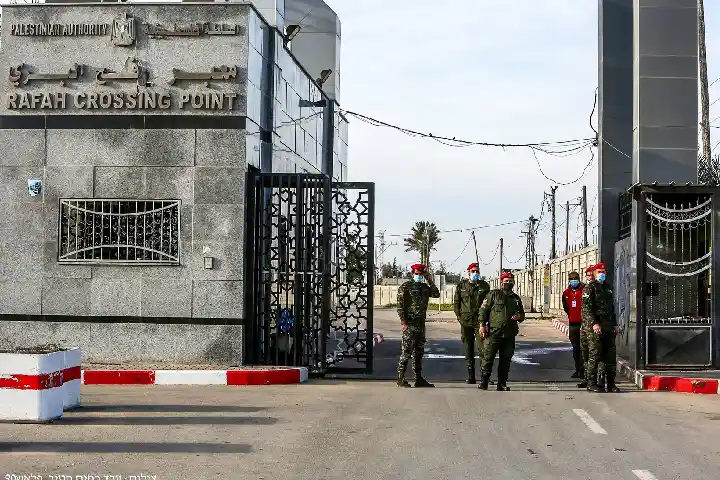Gazans fleeing Israeli bombardment of the densely populated enclave have nowhere to go, till now. The only place where they can head to – Sinai of Egypt via Rafah crossing remains shut for them. Cairo, wary of political fallout and security risks, is determined to prevent an exodus of refugees to Egypt.
The unprecedented Israeli evacuation order, delivered Friday by fliers, voice messages and on social media, has set off a desperate and chaotic scramble across the besieged territory. By the time of writing this article, Israeli forces were about to launch a ground assault, and a buffer zone for refugees was allowed on Lebanon border. Gazans were set to face more grim situation, even as hundreds of thousands of people were trying to move south.
As the humanitarian crisis in Gaza grows more dire by the hour, there are intensifying calls for the opening of a humanitarian corridor to bring in desperately needed food, water, fuel and medical supplies. Israel’s sudden evacuation order Friday for the more than 1.1 million residents of Gaza City has added to the pressure.
Egypt is however stockpiling aid sent by humanitarian organisations and Middle Eastern countries in northern Sinai, ready to be driven into Gaza should the Rafah crossing reopen. The country also launched a blood drive on Thursday under orders from President Abdel Fatah El-Sisi.
Egyptian aid vehicles waiting in front of Rafah border crossing, next to the Gaza Strip.#غزة_الآن #GazzeUnderAttack #Iran #Hezbollah #IsraelAttack pic.twitter.com/JeJQfexIAz
— world information (عالمی معلومات) (@NiazaliB92) October 15, 2023
In a speech at a military academy on Thursday evening, Sisi said Egypt — long a key interlocutor between Israel and Palestinian factions — was “ready to coordinate with all parties” and “keen to deliver humanitarian and medical aid to the Gaza Strip.”
Sisi and Egyptian Foreign Minister Sameh Shoukry have engaged in a flurry of phone calls and meetings with governments around the world in recent days.
But the question of whether to permit large numbers of Palestinians to exit Gaza to Egypt has revived a decades-old dilemma for Cairo. The government is concerned about security in the Sinai region and wants to avoid being seen as complicit in a campaign that could force Palestinians out of Gaza for good.
Even in times of relative peace, Egypt maintains tight control of the border. Palestinians wishing to exit Gaza must obtain permission from both Palestinian and Egyptian authorities. Wait times are long, and getting access to a speedier route often requires paying a hefty fee to private travel agencies. Northern Sinai, where Egypt has battled Islamist militants for a decade, is heavily militarized.
For Egypt, a massive influx of Palestinian refugees would pose significant political and security risks, analysts said. Public opinion is deeply sympathetic to the Palestinian cause, an issue with the rare power to ignite public anger in an authoritarian country where meaningful protest is effectively outlawed.
Talk of pushing Palestinians to Sinai as a more permanent solution is “not acceptable,” former Egyptian foreign minister Mohamed al-Orabi, now chairman of the government-linked Egyptian Foreign Relations Council, told The Washington Post in a talk. “If you were to talk about this alternative home, this would be the end of the Palestinian question.”
The mass displacement of Palestinians during the founding of the state of Israel in 1948 — an event Palestinians refer to as the Nakba, “catastrophe” in Arabic — remains a profound source of intergenerational trauma. Some 70 percent of Gazans are already refugees, having fled or been forced from their homes in parts of what is now Israel, and never allowed to return.






















